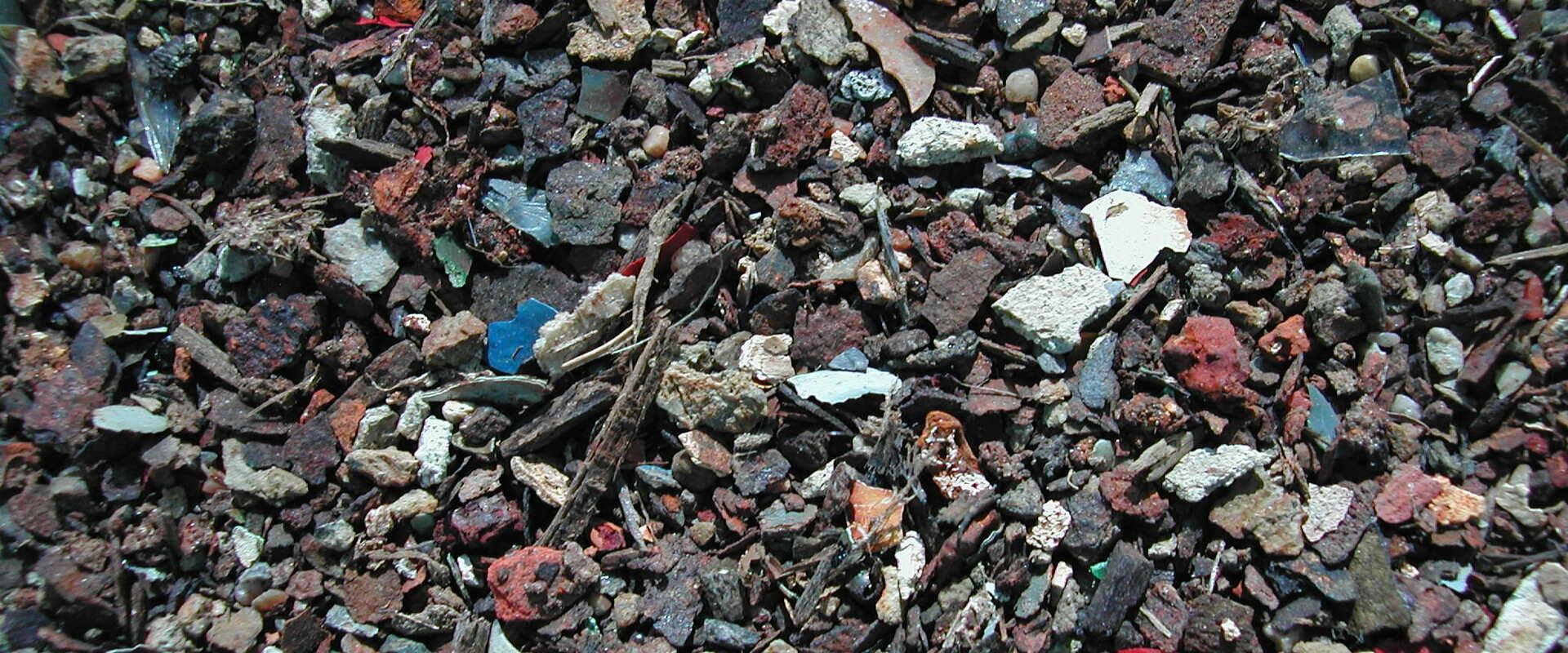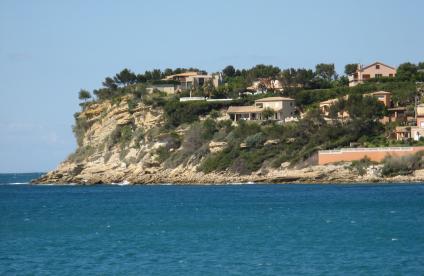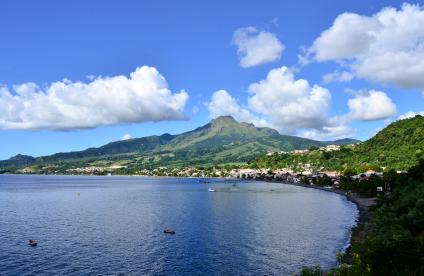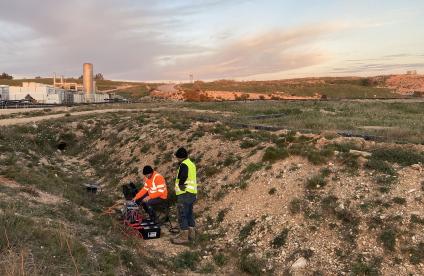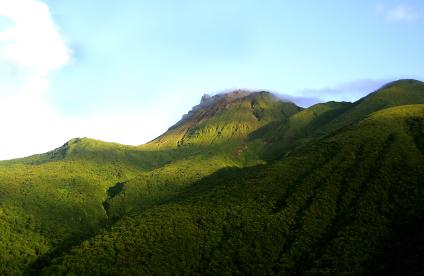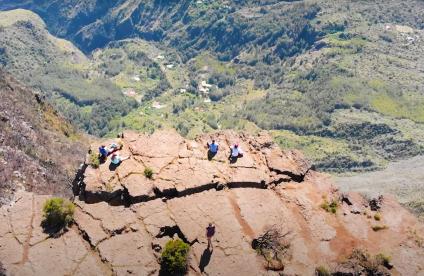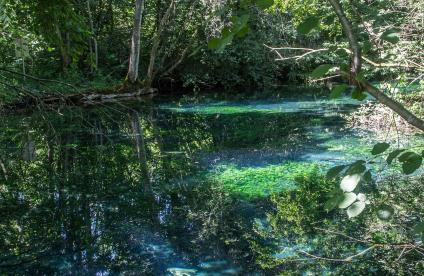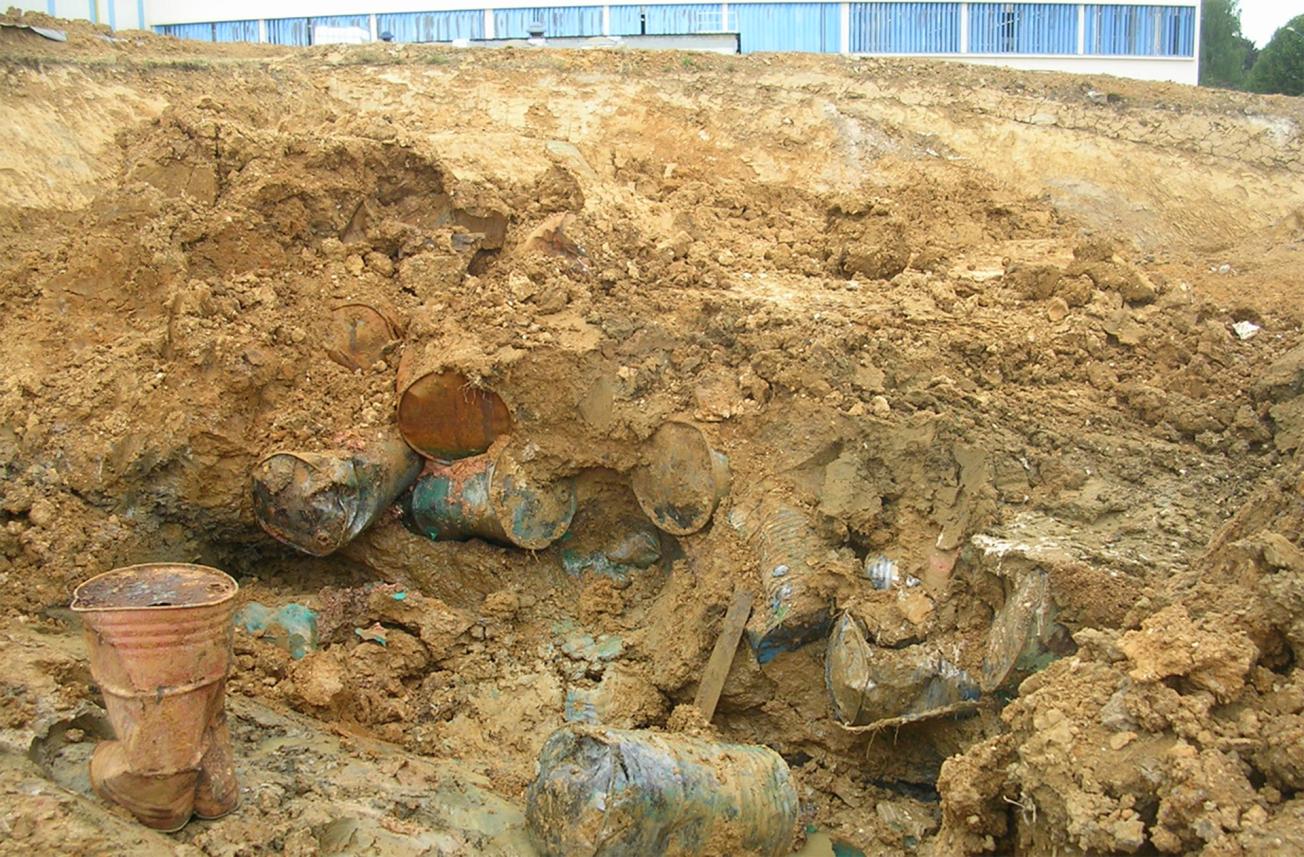
Waste found during earthworks (2005).
© BRGM - L. Rouvreau
The need
The industrial revolution and old waste management practices have left behind a large number of sites with polluted ground whose condition is not necessarily known. In recent years, French policy for spatial planning has promoted rebuilding the city over the city (ALUR Act) by encouraging the reuse of industrial wasteland in order to limit urban expansion in natural or agricultural areas. This context is conducive to the discovery of new, previously forgotten or unknown polluted areas during development projects or works involving the digging and extraction of earth. However, the discovery of ground pollution during construction often causes it to be stopped, leads to additional costs and a possible deterioration of the project owner's image. Moreover, this pollution can involve a risk both in terms of health (for unsuspecting workers and sometimes even for local residents) and from an environmental point of view.
The possibility of accidental discoveries of ground pollution is generally taken into account and anticipated:
- at the national level, through the risk prevention policy implemented by the MTE: inventories of (potentially) polluted sites (BASIAS, BASOL), oil spill waste storage sites or former French uranium mining sites (MIMAUSA);
- at the local level, by some local authorities through Urban Historical Inventories (IHU);
- in the field, where some major operators and private companies have implemented a policy of prevention and training for their staff in order to anticipate or manage cases of unexpected pollution discoveries as best they can. In addition, the regulations governing Installations Classified for the Protection of the Environment (ICPE) provide for securing and restoring these when they are no longer in operation. In addition, when intervening on these industrial sites, operators and companies are made aware of the prevention measures, the risks of pollution and the actions to be taken to deal with it.
However, most construction work is done outside the ICPE context, does not involve land development projects and takes place on sites where here is no reason to suspect pollution on private or public land, whose owners are not very aware of pollution issues). Moreover, at the local level, the importance attached to preventive measures varies from one operator to another and the actions to be taken are not well known by some of those intervening on the site, particularly individuals. Some of the pollution discovered incidentally during construction work may therefore be poorly managed and/or ignored.
The management of accidentally discovered pollution can be made even more difficult due to it not having been expected and to the different kinds of pollution (presence of buried waste in a garden, pollution of water from a well, leakage from an oil tank, etc.), as well as to the context of the work (carrying out a geotechnical or geothermal survey, redeveloping a plot of land, creating infrastructure networks or carrying out archaeological excavations) that led to the pollution being detected.
Accidental discovery of pollution: how to react?
Transcription
BRGM presents A guide on how to react to an accidental discovery of pollution Whether you're a private citizen or a company, if you discover harmful contaminants in the soil or groundwater, help is available. Experts in contaminated soil and water are at your disposal to help you get the situation under control. Construction projects often require digging, moving dirt around, which is often when you can encounter contaminants. Sometimes you see it: iridescent water, traces of fuel, discolored soil, viscous liquids, household waste, cisterns, back-fill that doesn't look right. ODORS Sometimes you smell it. Other times it's invisible, you don't smell it, but you feel it. ODORLESS AND COLORLESS Contaminants can delay a project, and beyond the risks to health and ecology, they can add to a budget. Here's what you should do when you discover environmental pollution. Working together with worksite managers, you must find a way to stop all operations at the site. Access must be cut off and those present must evacuate. Contact managers and inform them of the situation. In case of contact with contaminants, call the emergency services for help. Even the most common contaminants found in soil can affect long-term health. STAY SAFE! If the contaminants you come across are dripping or emitting dust, vapors, or odors harmful to those in the vicinity, or if they pollute groundwater or harm natural surroundings, once again call firefighters and inform the city. It's best to act quickly, ideally within the hour to get the situation assessed and alert the right people. There are experts on contaminated sites and soil available when you need them. Hotlines are typically free for you to talk to an expert and get a clear idea of what's going on. Within 48 hours, companies or building contractors without contamination experts in house should call on third-party experts. They're people who may take samples and recommend steps to take and protocols to safely continue the works. No matter what, the city must be notified about any and all new environmental pollution. They'll have a form ready for you to provide relevant information. Be warned that you can be liable for failing to inform the city. City hall is the preferred point of contact for reporting these events and notifying the right people. It's important to keep a record of contamination activity and the steps taken to clean up pollution. A lot of data on ground hazards are publicly available online. This and other information can help you prepare before starting works to limit your risk of coming in contact with contaminants. PREPARING CONSTRUCTION PROJECTS Getting informed before starting works can help you to avoid or at least be prepared for discovering contaminants. Another option is seeking an assessment from a pollution expert before starting. Look to our safety guide for detailed recommendations as well as notification forms. The guide is free of charge and available now.
The results
As part of its public policy support missions, to help prepare for and manage the accidental discovery of pollution, BRGM, in collaboration with the members of a special task force (FNTP, EDF, EPF Normandie, Mairie de Paris, CEREMA and UPDS), has drawn up a good practice guidebook intended for all the players concerned and mainly for small and medium-sized companies and individuals.
This guidebook follows the different steps involved in anticipating, identifying and managing pollution which has been discovered accidentally:
- preparation of a building site: sources of information on environmental quality, possible preliminary studies, concepts of risk prevention and tools and measures that can be implemented within companies to forestall or deal with accidental discoveries;
- indications of the presence of pollution: the principal types and characteristics of the main pollutants and associated organoleptic observations;
- immediate actions to be taken if pollution is discovered, in relation to the safety of people, observations to be made, people to be contacted, etc;
- the measures to be taken, in line with the national methodology for managing polluted sites and soils;
- the role of the different actors involved, communication and the importance of keeping track of the pollution.
The guidebook includes several documents:
- course of action to be taken in the event of an accidental discovery of pollution:
- information form (Annex 1), the main purpose of which is to keep a record of the pollution discovered and the management measures implemented. It is completed by the project owner.
- Prevention and management of accidental pollution discoveries - Literature review in France and abroad.
All these documents, as well as an explanatory video, are available on the InfoTerre - Polluted sites and ground website.
Using the results
This guide is intended for all those who may be directly or indirectly confronted with the problem of accidental discovery and management of pollution in the context of construction work, whether they be owners, project owners (public/private) or professionals. To make the guidebook easier to read, a distinction has been made between sections that are common to both companies and individuals and those specifically intended for companies.

The Ministry of Ecological Transition has set up a working group (with, among others, BRGM, EDF, the Union des professionnels de la dépollution des sites (Union of site clean-up professionals) and the Fédération nationale des travaux publics (National Federation of Public Works)), in order to draw up a guidebook for companies and local authorities. (...) It will detail the preventive actions to be taken before a worksite to anticipate or avoid this type of situation. It will specify good practice in terms of pollution management, risk management and communication.

